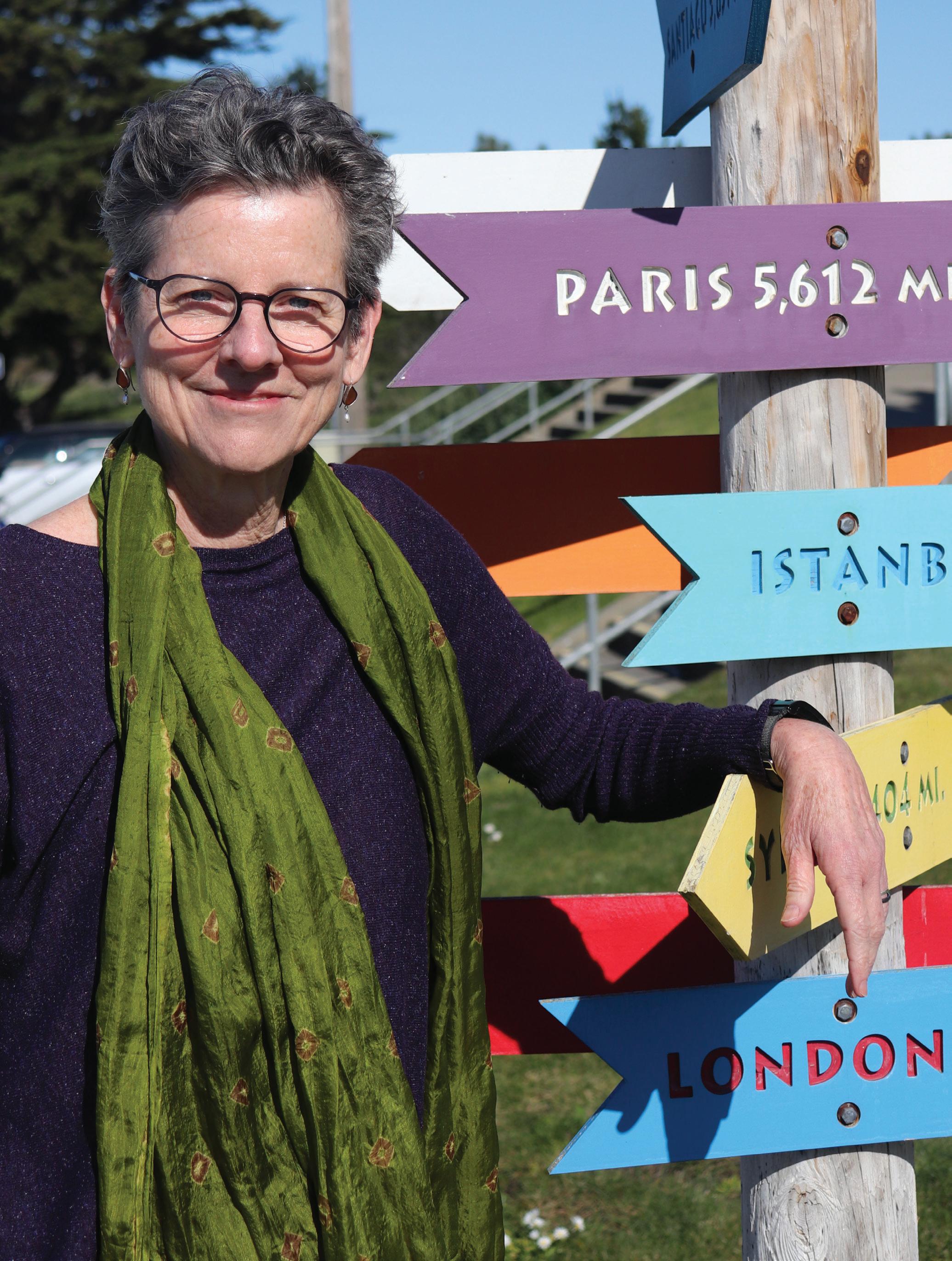
3 minute read
Magazine | Connecting the World
Connecting the World
Retiring professor built global studies program for 20 years
Advertisement
BY NIC COURY
Professor Kathryn Poethig has made a career by bringing the world to California State University, Monterey Bay. After more than 20 years of teaching global studies at CSUMB, a program she helped develop upon her arrival, Spring 2020 was her last semester.
During her tenure, she has taught about gender, feminist theory, religious studies and peacemaking on a global scale. Much of Poethig’s work before CSUMB was focused on Southeast Asia studies, namely in Cambodia and the Philippines.
“I really wanted to talk about epistemology, almost as human communications, but from a global perspective,” she says. “What are the views that bring us to worlds that religion talks about? How do we understand the politics of aspiration?”
It is a concept Poethig calls “invisible aid” — how other worlds interact with our world to produce a human response to political crises. Her work focused on war and postwar areas, and religion as politics of those areas.
“I was interested in what people didn’t talk about when talking about surviving the refugee experience,” she says. “A lot of those stories I heard were about how the Buddha would help them, or a dream they had about their father. Stories about how they really thought they survived these conflicts.”
A common thread emerged that fascinated Poethig. To survive, people everywhere relied on their belief in things beyond other humans, such as religion and prayer. That understanding helped Poethig grow the global studies program at CSUMB to make it more inclusive.
“Global studies isn’t the United States and the international community; it’s deeper than that. It’s beyond the binary of the U.S. and everyone else. What I want people to keep doing is finding their locations and understanding their translocality. We are all part of one another.”
As a department, Poethig believes global studies has done well reaching across borders to the Latinx and other communities and prompting students to think about intersectionality.

Kathryn Poethig brought the world to students through global studies.
Photo by CSUMB
“Those efforts have helped CSUMB students study all over the world and view their own personal role in the world. They are able to see things a little more consciously. It’s making people conscious of their own existence in a way.”
“What they do here is affecting them. Global studies is multidisciplinary with things like anthropology, religious studies and feminism. All of those things are connected,” says Poethig.
In the last five years, more international students are coming to CSUMB in a reverse study abroad. They bring their cultural experience from their homes to Monterey County.
“It’s a good way to have those voices conjoined. It makes a big difference in having an intersectional program. The university has become much more internationalized than it has been before,” she says. “By having the world in your classroom, it certainly disabuses you of generalizations.”
Poethig is confident global studies will thrive after she leaves.
“I think the program is going to go in some very interesting directions when I’m gone, and that has to do with the department itself. There are some really great faculty here.”
Her colleagues agree, and give Poethig much of the credit. From 2015 to 2017, Poethig co-chaired the American Council on Education Internationalization Lab initiative and helped CSUMB develop its first internationalization strategic plan.
“Dr. Poethig paved the way and established the Global Studies Education Abroad Guide. She dedicated countless hours, working outside of her duties with the International Programs (IP) staff,” said Ida Mansourian, IP associate dean. “She always keeps students’ wellbeing and success in mind. She has set a benchmark and model not only for Global Studies faculty and staff, but also for other academic programs to follow.”









